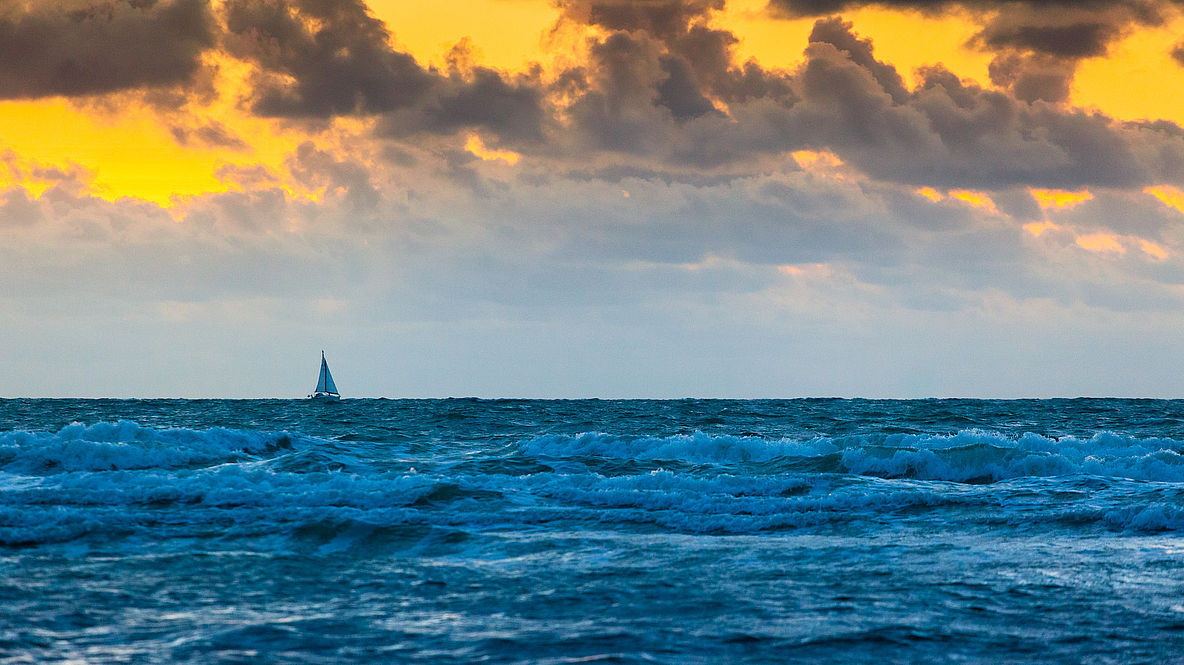Global Citizens' Assembly on Marine Conservation

On the first weekend of April 2024, the inaugural meeting of the Global Citizens' Assembly on Marine Conservation took place in Barcelona. This mini-public is part of the UN Decade of Ocean Science for Sustainable Development.
The Citizens' Assembly process is to be applied in more than 100 countries worldwide. The aim of the Global Citizens' Assembly is to involve citizens in the discussions on the United Nations Ocean Conference planned for 2025.
Addressing global challenges
The Global Citizens' Assembly addresses challenges such as climate change, the sustainable management of resources and social justice. According to the organising organisation Missions Publiques, it represents a significant step towards a renewed maritime policy that is in line with the United Nations' Sustainable Development Goals.
"Throughout history, the ocean has been a focal point of power struggles, from the dominance of shipowners in Roman times and the control by maritime lords in the Middle Ages, to a contemporary legal void in international waters. Now, amidst a pressing environmental crisis, it is vital to reassess the effectiveness of our governance models for humanity’s common goods, especially the ocean," reads an article by Missions Publiques on the Citizens' Assembly.
Broad spectrum of voices involved
The 2023 ratification of the UN Treaty on the High Seas marks a significant step in this direction, establishing the right (and duty) of every individual to participate in decisions shaping the ocean’s future, and thereby our planet’s. The inauguration of the Global Citizens’ Assembly on the Ocean, within the framework of the United Nations Ocean Decade, marks the beginning of a practical exploration into this democratic revival for ocean governance.
Assembly participants gathered at the Centre de la Platja in Barcelona on 8 April 2024 to discuss ocean-related issues. The Citizens' Assembly includes the voices of the living system, current generations and generations not yet born. Also called the ‘Three-Thirds Method’, it aims to incorporate a wider spectrum of voices while tackling global challenges and justice criteria more holistically.
Participants from 30 countries
The seaside Centre de la Platja in Barcelona provided an ideal environment for participants to connect physically and emotionally with the sea, deepening their understanding of the issues discussed. The market research institute fieldwork.quality brought together 43 citizens from 30 different countries, including 22 from the Global South here.
Future generations are a fundamental pillar of the three-tirds method, explains Missions Publiques. " The decisions made today will have far-reaching effects, impacting not only the coming decades but also centuries ahead. This reality raises fundamental questions about ensuring our current choices benefit the long term, including future generations’ interests."
"Future generations insufficiently represented"
Often merely symbolic in political rhetoric, future generations are typically represented by youth councils, a step that remains inadequate. The three-thirds method strives to transcend these limitations by adopting a more inclusive, forward-looking approach, giving a genuine voice to future generations in current deliberations.
The inaugural meeting of the Global Citizens' Assembly on the Ocean is a precursor to a larger project: the involvement of more than 10,000 citizens from 100 different countries on all continents.
Online discussion planned
The first meeting has laid the foundation for the Global Citizens' Assembly, Decentralised citizens' assemblies with 50 to 100 people will be held in each of the 100 partner countries. These local mini-publics will take place for at least one day in a wide variety of locations, from rural areas to coastal cities, island states and landlocked countries. All participants, including those from indigenous communities, are invited to share their perspectives, experiences and life stories.
The consultation will extend beyond local assemblies; a vast, multilingual online consultation is also planned to engage millions of citizens globally. This combined approach ensures the inclusion of diverse perspectives, especially from individuals previously unfamiliar with ocean governance issues.
UN Ocean Conference 2025
The results of the discussions will be summarised in a final report to be presented at the United Nations Ocean Conference in May 2025. The report will set out clear priorities and formulate concrete recommendations for the protection of the oceans. The report formulated by citizens is intended to encourage political decision-makers to initiate a constructive dialogue based on the citizens' proposals.
On 4 June 2024, another Citizens' Assembly will be held in Paris as part of the Université populaire de prospective to test the three-thirds method.
The first meeting of the Global Citizens' Assembly on Marine Conservation is an initiative of Missions Publiques in collaboration with the Consortium of Science and Policy Outcomes (CSPO), Participaction, Raons Publiques and Platoniq.
Learn more: The Ocean Decade
This article was originally published on the Missions Publiques website.
Image license: CC BY-NC-ND 2.0 Deed